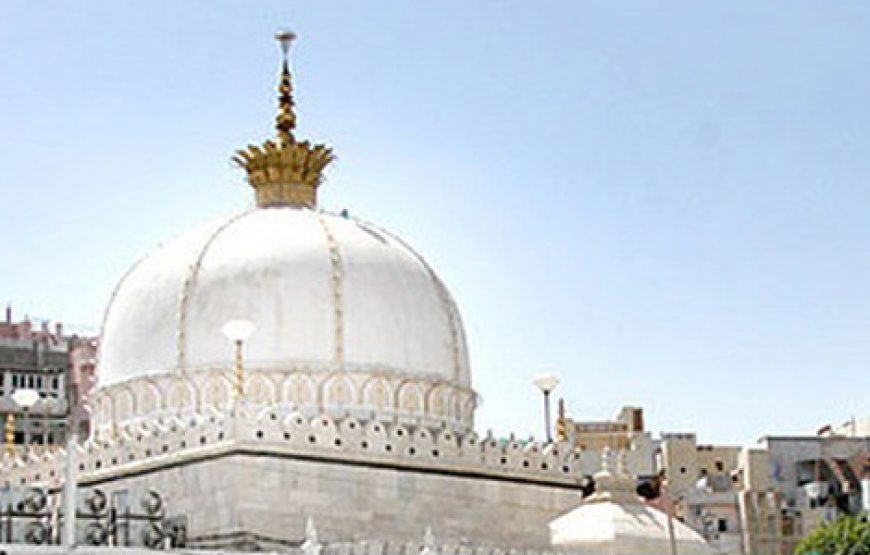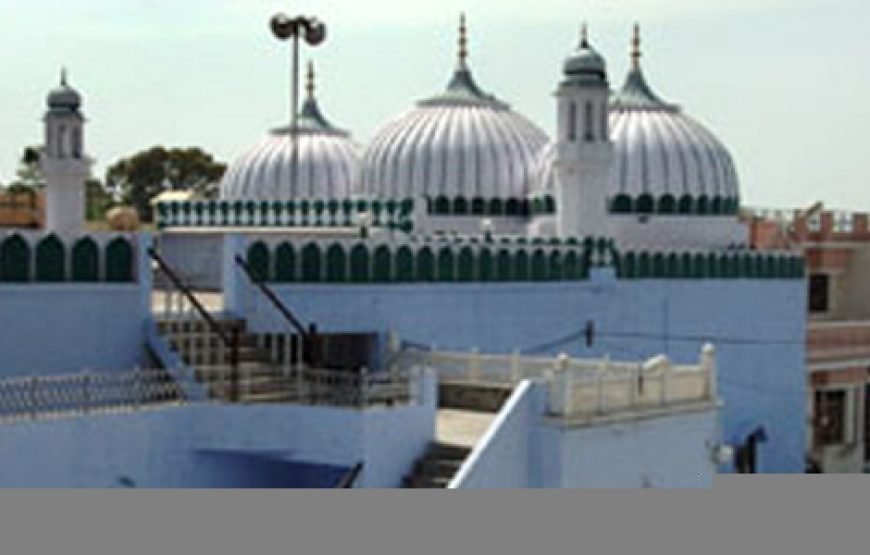from 0 review
07 NIGHTS / 08 DAYS
Daily Tour
Unlimited
___



Arrive Delhi meet with Imperial Voyages representative and assistance on arrival at Airport. Later you will proceed to Hotel.
After breakfast enjoy city tour Jama Masjid (Friday visit in the afternoon not advisable) - The largest mosque in Asia, drive past Red Fort (closed on Monday) - The red stone magic, Gandhi memorial - The memoir of father of the nation, India Gate - The memorial of martyrs, Parliament House - The Government Headquarters . Nizamuddin Dargah is the dargah (mausoleum) of one of the world's most famous Sufi saints, Nizamuddin Auliya. The dargah is visited by thousands of Muslims every week, and sees a fair share of Hindus, Christians and people from other religions. The tombs of Amir Khusro and jehan Ara Begum are also located within the Nizamuddin Dargah complex, and Inayat Khan's tomb is just around the corner. Qutub ul Aqtab Hazrat Khwaja Syed Muhammad Qutbuddin Bakhtiar Kaki (born 1173-died 1235) was a renowned Muslim sufi mystic, saint and scholar of the Chishti Order from Delhi, India. He was the disciple and the spiritual successor of Moinuddin Chisti as head of the Chishti order. Before him the Chishti order in India was confined to Ajmer and Nagaur. He played a major role in establishing the order securely in Delhi. His darga in Mehraul, the oldest dargah in Delhi, is the venue of his annual Urs. The Urs was held in high regard by many rulers of Delhi. The influence of Qutubuddin Bakhtiyar Kaki on Sufism in India was immense. As he continued and developed the traditional ideas of universal brotherhood and charity within the Chisti order, a new dimension of Islam started opening up in India which had hitherto not been present. He forms an important part of the Sufi movement which attracted many people to Islam in India in the thirteenth and fourteenth centuries. Overnight stay at Hotel.
After breakfast drive railway station to connect train for Ajmer. Ajmer Situated in the heart of the Rajasthan desert, Ajmer offers a compatible blend of Sufi culture and Hindu religion. For long, Ajmer was always a politically and spiritually important centre for the Rajputs, the Mughals and the Marathas. Now, Ajmer is an important spiritual and cultural centre of India and people from all walks and religions of life throng to the city to seek the blessings of Hazrat Khwaja Moinuddin Hasan Chishti, whose shrine is located in the heart of the city. Adhai-dinka Jhonpra Mosque By local folklore it was a Jain temple once & was converted to a mosque during the period of Mughal emperor Aurangzeb in a short span of two & half a day. Still some pillars have pictures similar to Hindu temples. Abdullah Khan Tomb Built in the year 1710 AD, this tomb represents the architecture grandeur of the later mughal era. A plaque in the nearby shrine describes that one more mosque and a patch were put up alongside with this mosque, of which nothing remains. Overnight Stay at Hotel.
Followed by city sightseeing of Jaipur visit City Palace - occupies a large area divided into a series of courtyards, gardens & buildings and a perfect blend of Rajasthani & Mughal architecture, Royal Observatory - An observatory with some rare qualities to its credit,
After breakfast drive past HawaMahal (the Palace of Winds) - and take an excursion to Amer fort with joy ride on an Elephant/Jeep. You will see Jai Mahal, Sheesh Mahal, mirrors, hall and among the places we'll see. Return to the city passing by Jal Mahal Afternoon drive to Agra approx 235 Kms 04-05 hours enroute visiting Fatehpur Sikri built by Emperor Akbar in 1569 AD. Visit the graceful buildings within the city including Salim Chisti's Tomb, Jama Masjid, Panch Mahal and other palaces. Arrive Agra check-in to hotel. Later free for own activities. Overnight Stay at Hotel.
Visit Taj Mahal (Closed on Friday) built by the Mughal Emperor Shah Jehan in 1630 AD for his queen Mumtaz Mahal to enshrine her mortal remains. It's a poem written in white. After visit Return back to Hotel for Breakfast. After that visit Agra Fort - a visit to the fort in 'Agra' is must since so many of the events which lead to the construction of the Taj took place here. In the afternoon drive to Delhi approx 210 kms -05 Hours drive. On arrival check in to Hotel. Overnight Stay at Hotel.
After breakfast drive to SIRHIND. The Highway to Sirhind has recently been modernized and is a four lane divided highway with a number of midway restaurants to unwind you. Sirhind is famous for Sirhindi's shrine, known as Rauza Sharif, and Imam-i Rabbani Shaykh Ahmad al-Faruqi al-Sirhindi(1564-1624) who was an Indian Islamic scholar from Punjab and a prominent member of the Naqshabandi Sufi order. He is described as Mujaddid Alf Thani, meaning the "reviver of the second millennium", for his work in rejuvenating Islam and opposing the heterodoxies prevalent in the time of Mughal Emperor Akbar He is said to have had considerable and long-lasting influence in India and to have given "to Indian Islam the rigid and conservative stamp it bears today." Most of the Naqshbandi suborders today, such as the Mujaddidi, Khalidi, Saifi, Tahiri, Qasimiya and Haqqani sub-orders, trace their spiritual lineage through Sirhindi, often referring to themselves as "Naqshbandi-Mujaddidi". After taking Blessings in the Shrine, drive back to Delhi. Dinner and overnight at Hotel.
Departure from Delhi Morning on time assistance transfer to international airport to board flight to onward destinations.